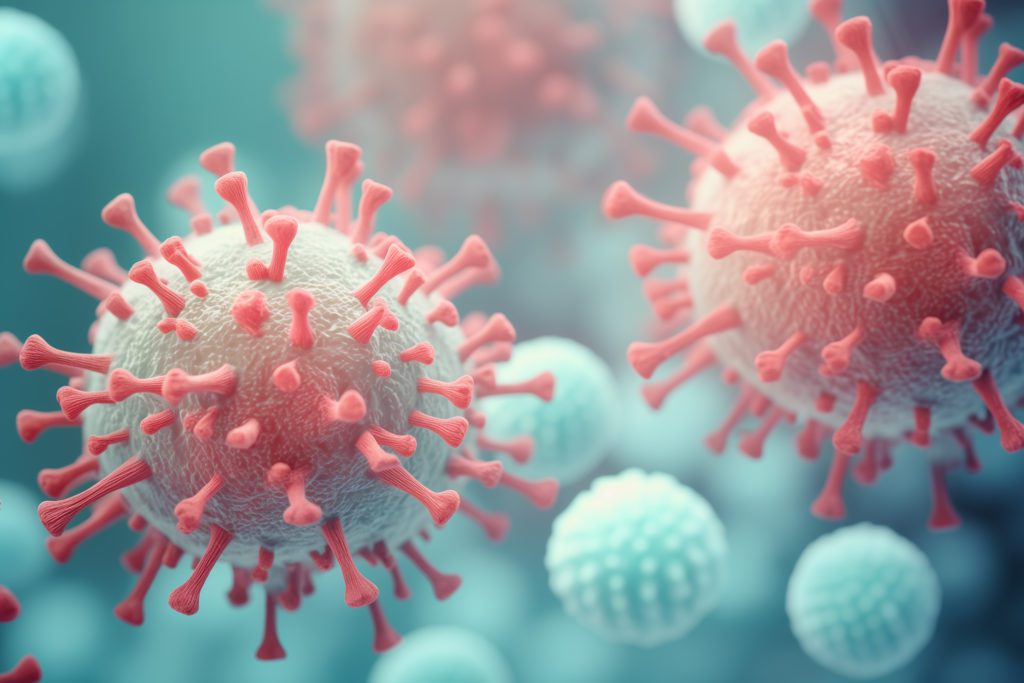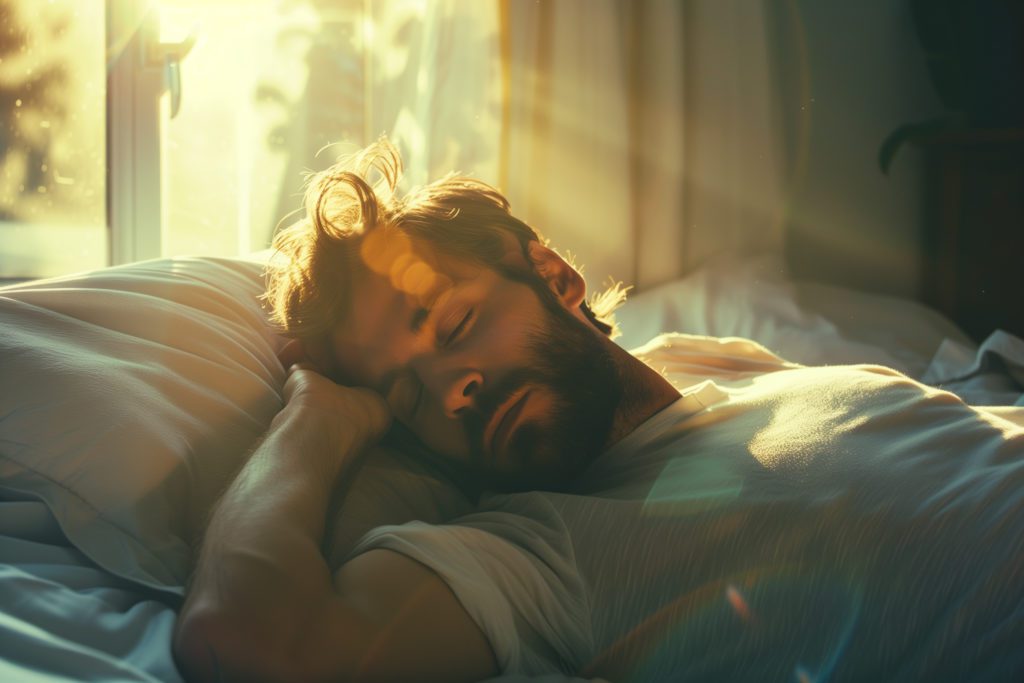
Hypersomnia Uncovered: What’s Making You So Sleepy?
Understand hypersomnia, from its causes like emotional abuse to genetic factors. Explore remedies and insights to manage excessive sleepiness.

If you find yourself tired from day to day despite getting enough hours of sleep every single night, you may have something called hypersomnia. Hypersomnia is the inability to stay awake and alert even despite getting enough sleep at night. Some other related disorders that you may have heard of include narcolepsy and Kleine-Levin syndrome, both of which are also related to sleep challenges.
In this article, we're going to uncover the truth behind hypersomnia and explore why you may feel so sleepy. Contrary to what you might believe, hypersomnia is not just related to your sleep but can also be caused by a multitude of other challenges that may have occurred throughout the entirety of your life.
What Causes Hypersomnia?
Early Emotional Abuse
One of the main causes that people have discussed that may have a role in hypersomnia is emotional abuse in one's childhood. There have been several studies that show how this can be tied to hypersomnia and the inability to truly feel awake throughout the day. One study showed that hypersomnia is connected to early childhood trauma, specifically showing how people can prevent this disorder.
However, other studies have also shown that emotional abuse can be tied to any number of sleep disorders, including insomnia, showing that this is still an area where people are investigating the facts behind the situation. More research is likely to come in the following years, but for now, there at least is some semblance of a connection between emotional abuse in one's childhood and whether or not one feels rested throughout the day.
Circadian Rhythms and Brain Changes
Another connection that researchers have found to hypersomnia is a disruption of circadian rhythms or even changes within one’s brain. Many people have said that this is not conclusive, meaning that more research needs to be done, but evidence still suggests that circadian rhythms influence whether or not people feel awake throughout the day.
The current evidence suggests that changes to the circadian rhythm over time and even to the structure of the brain, whether in childhood or throughout one's adolescence, can actually cause hypersomnia in later years. Yet, it's really important to understand that hypersomnia is still quite understudied compared to other sleep disorders, so it is unclear whether people can still connect circadian rhythms and brain changes to a sense of sleepiness throughout the day.
However, people have found connections with neurochemical alterations or changes to substances like dopamine, serotonin, and others within the brain.
Neurochemical Alterations
Neurochemicals typically refer to substances like hypocretin, orexin, dopamine, histamine, serotonin, and gamma-aminobutyric acid (GABA). Histamine and hypocretin are two main transmitters that help with arousal or the ability to stay awake, but what's interesting is that studies have shown that they are not deficient in those who have hypersomnia.
However, there is an increase in GABA, which has been shown to impact circadian dysfunction and the potential for sleepiness throughout the day. With imbalances in neurochemicals like GABA, histamine, and others, it makes sense that the brain would not be able to function normally, leading to these feelings of sleepiness.
Genetic or Family History
Did you know that hypersomnia can also be tied to genetics or family history? There is a genetic link that has been studied that shows that up to 39% of people with idiopathic hypersomnia may have a family history of it, which means that this is passed down from parent to child.
In other words, if you find yourself diagnosed with hypersomnia, it might be a good idea to ask your relatives whether or not they have excessive sleepiness throughout the day. You might just find it runs in the family!
Certain Diseases
It is possible that certain diseases can actually cause hypersomnia, mainly due to the fact that there are other stressors or changes in the brain that are happening that affect your overall alertness. Some of the examples that people have studied include conditions like Parkinson's disease, epilepsy, and other mood disorders.
Huntington's disease, Alzheimer's disease, and others have also been connected to hypersomnia, showing a wide range of particular conditions that could affect your ability to stay awake and not experience sleepiness throughout the day.
Medication, Alcohol, or Lack of Sleep
Sometimes, hypersomnia is not caused by any disease or neurochemical alteration but rather by medications or alcohol that you may have been consuming or even a lack of sleep itself. If you take any medications regularly, you may find yourself experiencing more sleepiness throughout the day due to the way that these medications interact with your body. These medications can range from antibiotics to various others, including cannabis and more.
Additionally, if you have alcoholic drinks the night before you go to sleep, you may also experience hypersomnia or do so when you're going through withdrawal from certain substances that you take regularly. This is because your body is working hard to try and maintain its balance, or homeostasis, leading your body to potentially make you feel sleepy as it works in overdrive.
Many people also may be missing out on REM sleep, a critical component that will ensure you feel rested after sleeping. If you struggle with getting quality sleep, it might be time for you to avoid things like caffeine and exercise before bed to try and improve your sleep.
Enhance Your Sleep
Hypersomnia can be really difficult to deal with, but there are so many causes that can help you figure out the root of your situation. Whether you inherited it from a family member or simply take a medication that causes you to feel sleepier throughout the day, you can discover how to improve your arousal throughout the day and make sure that you feel alert and ready to go.
FAQ
Is Hypersomnia a disease?
Yes, hypersomnia can be considered a disease, particularly when it manifests as a primary condition like idiopathic hypersomnia. This type of hypersomnia occurs without an identifiable cause and is recognized as a disorder in the International Classification of Sleep Disorders (ICSD-3). However, hypersomnia can also present as a symptom of other conditions, such as sleep apnea, depression, or neurological diseases.
Can Hypersomnia be completely cured?
The possibility of completely curing hypersomnia depends on its type and underlying cause. Secondary hypersomnia, caused by conditions like sleep apnea or medication side effects, may resolve if the root cause is treated effectively. However, primary hypersomnia, such as idiopathic hypersomnia, often requires long-term management rather than a complete cure. Treatments like medications, lifestyle changes, and behavioral therapies can help alleviate symptoms and improve quality of life, but ongoing management may still be necessary.
How is Hypersomnia diagnosed?
Diagnosing hypersomnia involves a comprehensive evaluation, including a detailed medical history, physical examination, and specific sleep studies. The Multiple Sleep Latency Test (MSLT) measures how quickly one falls asleep in a quiet environment during the day, aiding in the assessment of excessive daytime sleepiness. Additionally, polysomnography may be conducted to rule out other sleep disorders.
What are the potential complications of untreated hypersomnia?
Untreated hypersomnia can lead to impaired daily functioning, reduced productivity, and increased accident risks, particularly while driving. It may also cause mental health issues like depression, anxiety, and social isolation. Physical complications, including obesity and heart disease, can arise from inactivity and poor sleep regulation, diminishing overall quality of life.
Are there alternative therapies for hypersomnia?
Alternative therapies such as cognitive-behavioral therapy for insomnia (CBT-I), light therapy, and mindfulness-based stress reduction can help manage hypersomnia. These approaches address stress, improve sleep hygiene, and regulate circadian rhythms.
How does hypersomnia differ from narcolepsy?
While both conditions involve excessive daytime sleepiness, they differ in key aspects. Narcolepsy is characterized by sudden sleep attacks and, often, cataplexy (a sudden loss of muscle tone), whereas hypersomnia involves persistent sleepiness without these sudden episodes. Additionally, individuals with hypersomnia may experience prolonged, unrefreshing sleep, whereas narcolepsy often includes disrupted nighttime sleep.
Are there lifestyle changes that can help manage hypersomnia?
Yes, certain lifestyle modifications can assist in managing hypersomnia. Maintaining a regular sleep schedule, creating a restful sleep environment, and avoiding caffeine or alcohol close to bedtime are beneficial practices. Incorporating regular physical activity and managing stress through relaxation techniques can also improve sleep quality and reduce daytime sleepiness.

Written by
Marie Soukup
Marie Soukup is a seasoned copywriter, editor, and Integrative Nutrition Health Coach with a certificate from the Institute of Integrative Nutrition (IIN). With five years of experience working with brands across diverse industries, Marie is passionate about holistic health and crafting compelling content.
Download Pillow
Get help
Press & News
Legal
Connect
X (Twitter)
Company
Copyright © Neybox Digital Ltd.



